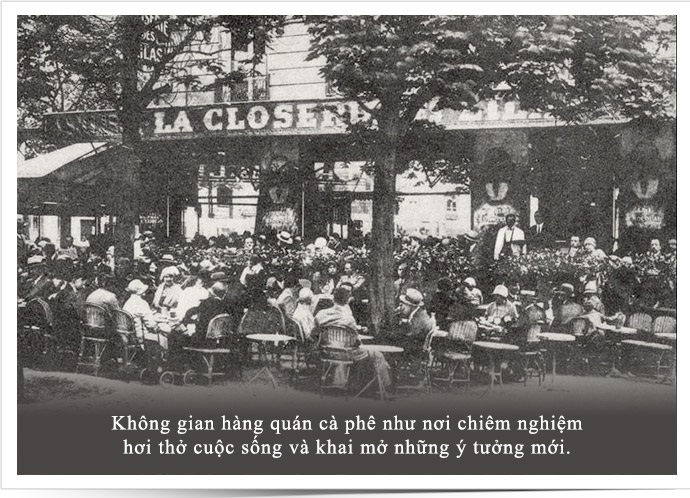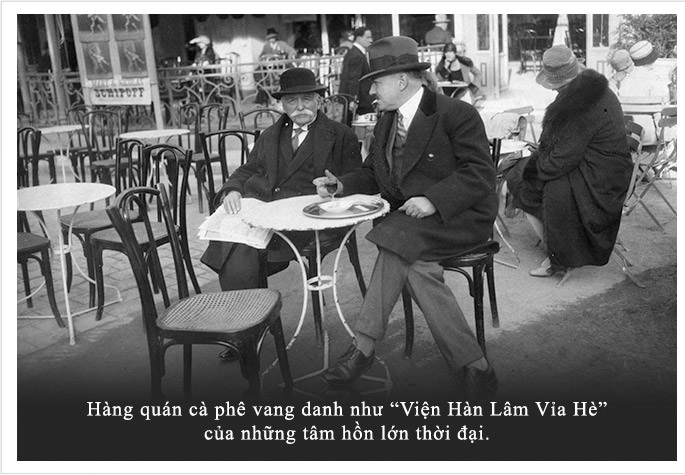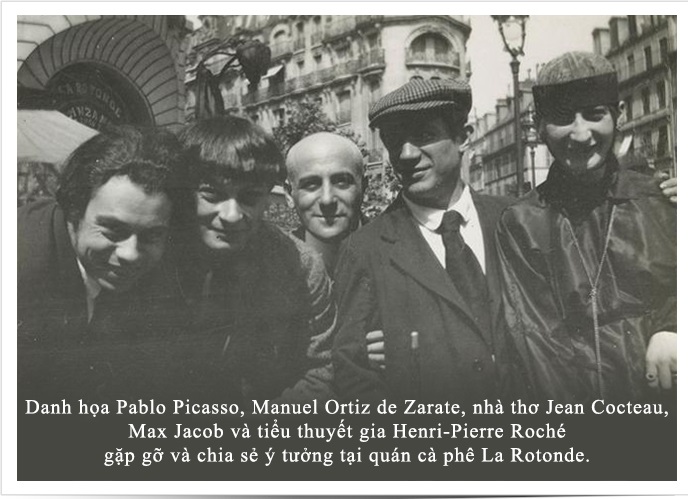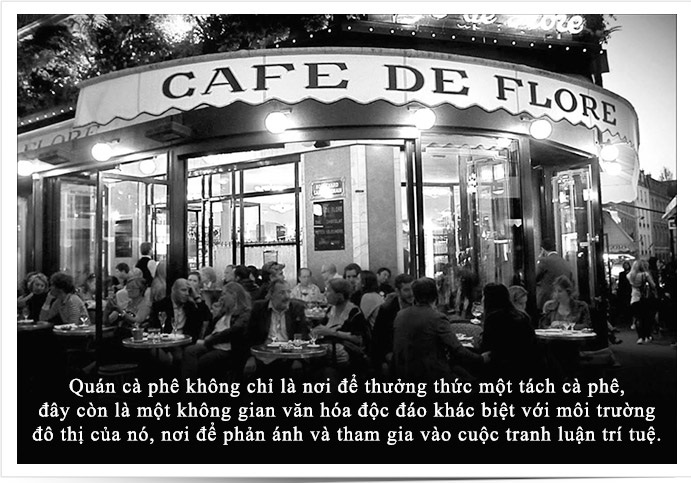Article 14: Coffee Awakened Humanity: Coffee Space during the “Roaring Twenties”
The cafe has taken on an important role in the history of French culture. In it, there is always a link between the cafe and the Enlightenment movement, the art movement, literature and French philosophy.
“Les Années Folles” (the crazy years) in Western Europe and “Roaring Twenties” in North America that began after World War I (1920) and lasted until World War II (1939) ). The beginning was the personal affirmation of the survivors of the terrible world war, who wanted to recreate the world, proposed by “ideal individuals” in painting as well as in poetry, like the majority of young artists and intellectuals at that time.

The coffee space is like a place to experience the breath of life and open up new ideas.
At the end of World War I, the French yearned for a free life and a progressive society. Characterized by a wave of creativity and innovation in all cultural and social fields. During those years, the cafes on both sides of the Seine were considered pioneers to initiate a new lifestyle. Creative intellectuals come from all over the world such as Ernest Hemingway (American novelist), William Faulkner (American writer who won the Nobel Prize for Literature in 1949), Max Jacob (French painter, writer and critic), F. Scott Fitzgerald (American writer), Vladimir Lenin (leader of the Russian proletarian revolutionary movement), Leon Trotsky (one of the leaders of the Russian October Revolution), Tsuguharu Foujita (Japanese artist),… gather at the cafe to discuss social events, share ideas and aspirations towards a civilized society.

Cafes were well-known as “Sidewalk Academy” of the great souls of the era
The cafes of this period were well-known as the “Sidewalk Academy” of the great souls of the era, a “station platform” full of people waiting for trains to take them to the desired future, a place where “life is full of life” for people who are “full of crazy hopes”…
The desire to recreate the world, the inspiration and ideas shared from the cafe became the catalyst that nurtured the French artistic and literary movements of the twentieth century. Café de Flore was where André Breton, Louis Aragon, Philippe Soupault exchanged and developed Surrealism and the Dadaism literary and artistic movement. Café de Flore was also the meeting place for those who pursued Existentialism.

Artists Pablo Picasso, Manuel Ortiz de Zarate, poets Jean Cocteau, Max Jacob and novelist Henri-Pierre Roche met and shared ideas at La Rotonde cafe.
Meanwhile, La Rotonde cafe was an exhibition space filled with collections of artworks by artists such as Pablo Picasso, Alexandre Jacovleff, Diego Rivera, Federico Cantú Garza, etc. La Closerie Des Lilas Cafe was the rendezvous of great names in literature and poetry such as Hemingway, Henry Miller, Guillaume Apollinaire, Paul Fort, Paul Cézanne… with “literary, artistic and cultural commentary” sessions every Tuesday…
Based on historical testimonies, researcher Karen Dees wrote in her essay “The role of the Parisian café in the emergence of modern art” that contemporary artists used the cafe space as a place to contemplate the breath of life and to open the mind up for new ideas. The cafe has become a place for the development of modern consciousness, the promotion and dissemination of new forms of art, and a symbol of social life.
Professor, French cultural historian – W. Scott Haines also commented: A coffee shop is not only a place to enjoy a cup of coffee, it is also a unique cultural space, distinct from its own urban environment, the place to reflect and engage in intellectual debate. Coffee shops are also thought spaces that inspire knowledge workers, expanding and promoting their ideas. Thus, the cafe has, in fact, assumed an important and even official role in the history of French culture and throughout the world. In it, there is always a link between the cafe and the Enlightenment movement, the French artistic, literary and philosophical movements.

The cafe is not only a place to enjoy a cup of coffee, it is also a unique cultural space distinct from its own urban environment, a place to reflect and engage in intellectual debates.
Indeed, in the twentieth century, the exponential expansion of Parisian cafes and a constant pace of creative life have contributed to making Paris the capital of arts, a major center of cultures and hopes of the world.
*Coming up: Napoleon Bonaparte: “Coffee wakes me up and makes me incredibly strong”


